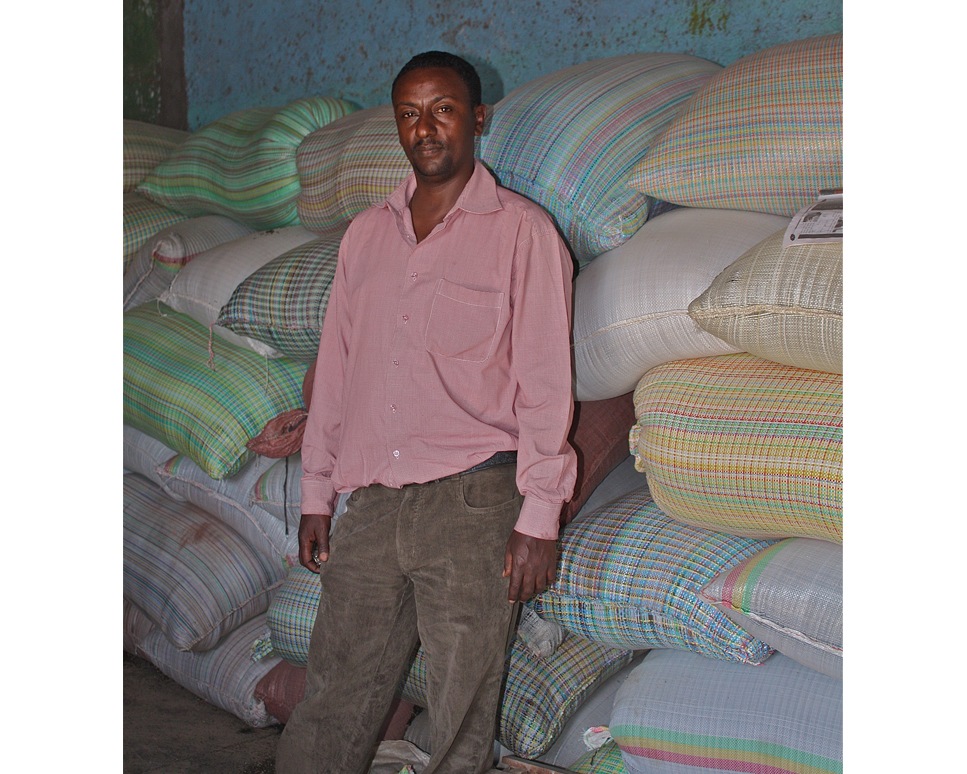

Uniting Ethiopia’s oilseed producers

By Elisa Sabbion
Endalkachew Nigatu had been in the oilseed processing business for three years when the Ethiopian government banned seed oils in response to high commodity prices in 2007.
He and other farmers, traders and processors suffered substantial losses as imported oils substituted locally produced oil, and the government distributed wheat and edible oil to the urban and rural poor at subsidized prices.
“Once upon a time, there were few competitors, enough market share and few challenges, but today the business is complicated,” says fellow-processor Reduan Musa.
But three years later, Endalkachew went from victim to catalyser of the oilseed industry in his town of Adama, in central Ethiopia. He helped organize local oilseed entrepreneurs—many of whom were skeptical of what could be done— to participate in an MDG-F-supported workshop aimed at revitalizing the edible oil value chain.
Strength in unity
Entrepreneurs began sharing information about oilseeds, creating networks with other stakeholders in the sector and collaborating to solve common business bottlenecks through the newfound Adama Edible Oil Producers Cluster Association.
Fifty micro-, small- and medium‐sized edible oil producers formed the Right Edible Oil Producers (REOP), and many processors participated in a series of trainings and study tours to factories in other cities.
“Before this project we did everything traditionally, now we know how to use, set and clean machineries, and we can generate more oil from the same quantity of seeds,” says Endalkachew.
Through the workshops, says Endalkachew, many producers have come to realize that their product does not correspond to the industry’s quality standards. “The trainings changed our way of thinking, they convinced us to pool our resources and made us think about establishing a large common refinery,” he says.
The Edible Oil Value Chain Enhancement Programme is a three-year initiative jointly implemented by the Ethiopian government and UNIDO, ILO and FAO in the Amhara and Oromia regions of Ethiopia. It aims to increase the productivity and competitiveness of Ethiopia’s oilseed producers, boost capacity for processing oilseeds, and improve access to local and international markets by integrating the private sector into the edible oilseed production value chain.
The programme is part of the MDG-F’s efforts to help governments achieve the Millennium Development Goals, focusing particularly on the most disadvantaged populations as a strategy to reduce global inequalities.
Supporting farmers to fight poverty
The edible oils initiative is contributing to MDG 1 (poverty reduction) by supporting farmers to enhance their productivity, MDG 3 (women’s empowerment), as nearly half of small-holder beneficiaries are female household heads, and MDG 7 (environmental sustainability), by reducing urban pollution and promoting sustainable and environmentally-friendly land husbandry techniques.
The project has also provided office space and equipment and helped facilitate dialogue between the private sector and government. Relations with local authorities have improved through consultations, and producers are now invited to participate in meetings and workshops.
Producers from other cities now want to join the project. “Big factories are calling to get contracts for oil supply, but we want to see the project’s outputs first,” says Endalkachew.
Ethiopia’s edible oil sector continues to face many problems, including unhealthy price competition among processors and farmers, limited knowledge of oil standards, high product loss, low diversification, and a tax regime that favors imported versus local oil.
But the REOP’s members are committed to collaborating to tackle issues like these. “We all had the same problems and we came together to solve them,” says Tamirat Katsala, an oil processing business owner.
And while Tamirat says that there is little recognition from the community for their products so far, the association members have agreed that when the quality and productivity of the oilseeds and the capacity of technical staff have improved, they will consider moving to a common site to produce branded oil, exploiting synergies and positive externalities of a large refinery plant.
‘This will improve our work, ensuring a better life for our families and benefits for our country,” explains Endalkachew.